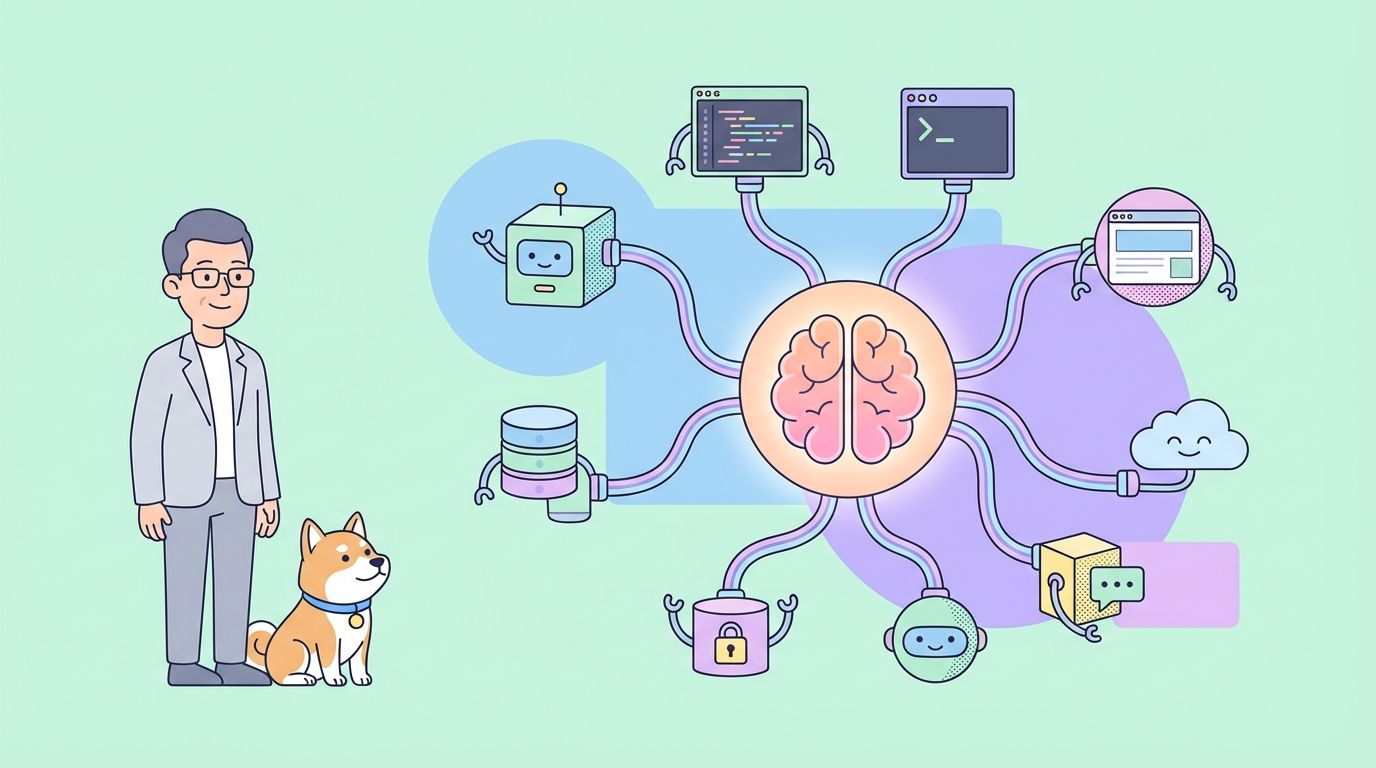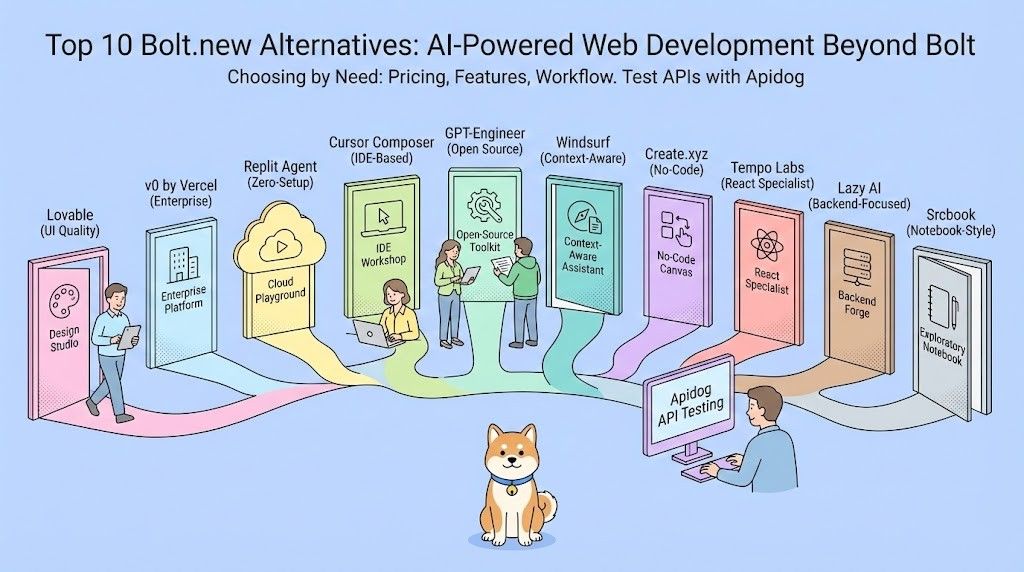In the rapidly evolving landscape of API management and integration, businesses are constantly seeking powerful alternatives to established platforms like Apigee. As we move into 2025, a new generation of API tools has emerged, offering innovative features, improved user experiences, and enhanced capabilities. This comprehensive guide explores the top 10 Apigee alternatives that are making waves in the industry, providing developers and businesses with cutting-edge solutions for API management, testing, and integration.
Why Do You Need to Search for an Apigee Alternative?
While Apigee is a powerful and widely used API management platform, there are several reasons why organizations might consider exploring alternatives:
Functionality and Features
Although Apigee offers a comprehensive set of features, it may lack specific functionalities that are crucial for certain use cases. Some organizations might seek alternatives that provide enhanced capabilities in areas such as real-time analytics, more flexible deployment options, or better support for specific API protocols.
Cost Considerations
Apigee's pricing model, especially after its acquisition by Google, can be prohibitive for smaller organizations or startups. Many businesses are looking for more cost-effective solutions that offer similar functionality without the enterprise-level pricing.
Integration with Existing Infrastructure
While Apigee integrates well with Google Cloud Platform, organizations heavily invested in other cloud ecosystems (like AWS or Azure) might prefer alternatives that offer tighter integration with their existing infrastructure.
Ease of Use and Learning Curve
Some users find Apigee's interface and configuration process complex, especially for teams new to API management. Alternatives with more intuitive interfaces and gentler learning curves might be preferable for these organizations.
Customization and Flexibility
Enterprises with unique requirements might find Apigee's customization options limiting. They may seek alternatives that offer more flexibility in tailoring the platform to their specific needs.
Performance and Scalability
While Apigee is known for its robust performance, some organizations with specific high-performance requirements or unique scalability needs might find other solutions more suitable.
Support and Community
The level and quality of support, as well as the vibrancy of the user community, can vary between platforms. Some organizations might prefer alternatives with more active community support or more responsive vendor assistance.
Data Sovereignty and Compliance
With Apigee being a cloud-based solution, organizations with strict data sovereignty requirements or specific compliance needs might look for alternatives that offer more control over data storage and processing locations.
1. Apidog: The All-in-One API Development Platform
Apidog stands out as a comprehensive solution for API development, testing, and documentation. As a powerful alternative to Apigee, Apidog offers a range of features that cater to the needs of modern API developers and testers.
There haven't been many changes to the Apidog UI in versions up to 2.6.20, so it's fine to use screenshots from these versions.

Key Features of Apidog
Apidog offers a comprehensive suite of tools for API development, testing, and management. Here are some of its standout features:
1. Unified API Lifecycle Management
Apidog provides a single platform for designing, developing, testing, and documenting APIs, streamlining the entire API lifecycle.

2. Advanced API Testing Capabilities
- Scenario-based Testing: Create complex test scenarios that mimic real-world use cases.
- Environment Management: Easily switch between different environments (development, staging, production) for testing.

- Data-driven Testing: Use CSV or JSON files to run tests with multiple data sets.
3. Version Control and Collaboration
- Git-like Versioning: Track changes to your APIs over time with built-in version control.
- Team Workspaces: Collaborate seamlessly with team members in shared workspaces.

4. Performance Testing
Conduct load and stress tests to ensure your APIs can handle high traffic and identify performance bottlenecks.

2. Kong: Open-Source API Gateway and Microservices Management
Kong is a popular open-source API gateway that offers a robust alternative to Apigee, particularly for organizations looking for flexibility and scalability in their API management solutions.

Key Features of Kong
- Plugin Architecture: Extend functionality with a wide range of plugins for authentication, security, and traffic control.
- Multi-protocol Support: Handle various protocols including HTTP(S), gRPC, WebSockets, and more.
- Declarative Configuration: Use YAML or JSON to configure Kong, making it easy to version control your API gateway setup.
- Developer Portal: Provide a customizable portal for API consumers to discover and interact with your APIs.

3. Tyk: Open-Source API Gateway with Built-in Analytics
Tyk is another open-source API gateway that provides a comprehensive set of features for API management, making it a strong contender among Apigee alternatives.

Key Features of Tyk
- API Versioning: Easily manage multiple versions of your APIs.
- Analytics Dashboard: Get insights into API usage and performance with built-in analytics.
- Identity Management: Integrate with various identity providers for secure API access.
- GraphQL Support: Native support for GraphQL APIs, including schema introspection and query validation.
4. Postman: Collaborative API Development Platform
While primarily known for API testing, Postman has evolved into a comprehensive API development platform, offering features that make it a viable alternative to Apigee for many teams.

Key Features of Postman
- API Client: Easily send requests and analyze responses for API testing and debugging.
- Automated Testing: Create and run automated test suites for your APIs.
- Team Collaboration: Share collections, environments, and test results with team members.
- API Documentation: Generate and publish interactive API documentation.
- Mock Servers: Create mock servers to simulate API responses for frontend development.

5. MuleSoft: Enterprise-Grade API Management and Integration Platform
MuleSoft's Anypoint Platform offers a comprehensive suite of tools for API design, implementation, and management, making it a robust alternative to Apigee, especially for enterprise-level organizations.

Key Features of MuleSoft
- API Designer: Visually design APIs using RAML or OAS specifications.
- Mule Runtime Engine: Build and deploy integration applications and APIs.
- API Manager: Manage API lifecycles, including versioning, access control, and analytics.
- Anypoint Exchange: Discover and share reusable assets, APIs, and connectors.

6. Azure API Management: Cloud-Based API Management Solution
Microsoft's Azure API Management provides a comprehensive set of tools for publishing, securing, transforming, maintaining, and monitoring APIs, making it a strong contender among Apigee alternatives.

Key Features of Azure API Management
- API Gateway: Secure and scalable gateway for managing API traffic.
- Developer Portal: Customizable portal for API documentation and developer onboarding.
- Policy Engine: Powerful policy system for transforming and securing APIs.
- Analytics: Built-in analytics for monitoring API usage and performance.

7. AWS API Gateway: Serverless API Management
Amazon Web Services' API Gateway offers a fully managed service for creating, publishing, maintaining, monitoring, and securing APIs at any scale, providing a compelling alternative to Apigee for organizations already invested in the AWS ecosystem.

Key Features of AWS API Gateway
- RESTful APIs: Create RESTful APIs with custom domain names and SSL certificates.
- WebSocket APIs: Build real-time two-way communication applications.
- Integration with AWS Services: Easily integrate with other AWS services like Lambda, DynamoDB, and more.
- API Versioning: Manage multiple versions of your APIs.

8. FastAPI: High-Performance Python Web Framework for APIs
While not a direct replacement for all of Apigee's features, FastAPI is worth mentioning as a powerful tool for building high-performance APIs quickly, especially for Python developers looking for alternatives to traditional API management platforms.

Key Features of FastAPI
- Fast Performance: Built on Starlette and Pydantic, FastAPI offers very high performance.
- Easy to Use: Intuitive to write and use with Python type hints.
- Automatic Documentation: Generates interactive API documentation (Swagger UI) automatically.
- Standards-Based: Fully compatible with OpenAPI and JSON Schema standards.

9. Gravitee.io: Open-Source API Management Platform
Gravitee.io is an open-source API management platform that offers a comprehensive set of features for API lifecycle management, making it a strong alternative to Apigee.

Key Features of Gravitee.io
- API Gateway: High-performance, non-blocking API Gateway.
- Developer Portal: Customizable portal for API documentation and developer onboarding.
- Access Management: Built-in identity and access management capabilities.
- API Designer: Visual tool for designing and documenting APIs.

10. Swagger (OpenAPI): API Development Ecosystem
While not a direct replacement for Apigee's full feature set, the Swagger (OpenAPI) ecosystem provides a set of open-source tools for designing, building, documenting, and consuming APIs, making it a valuable addition to any API management strategy.

Key Features of Swagger
- Swagger Editor: Browser-based editor for designing APIs with real-time validation.
- Swagger UI: Interactive documentation for your APIs.
- Swagger Codegen: Generate server stubs and client SDKs from your API definitions.
- Swagger Inspector: Test and validate your APIs.

Conclusion
As we've explored in this comprehensive guide, there are numerous powerful alternatives to Apigee available in 2025. From the versatile Apidog to specialized tools like FastAPI for Python developers, each option offers unique features and capabilities to suit different API management and development needs. When choosing an alternative to Apigee, consider factors such as:
- Your organization's specific API management requirements
- The scale and complexity of your API ecosystem
- Integration capabilities with your existing tech stack
- Open-source vs. proprietary solutions
- Cloud-native vs. on-premises deployment options
- Budget constraints and total cost of ownership
By carefully evaluating these factors and exploring the tools mentioned in this guide, you can find the perfect Apigee alternative that enhances your API development, testing, and management processes. Remember that the right tool can significantly improve your team's productivity, the quality of your APIs, and ultimately, the value you deliver to your customers. Take the time to experiment with different options and find the one that best fits your needs.
As the API landscape continues to evolve, staying informed about the latest tools and best practices will be crucial for organizations looking to leverage APIs for business growth and digital transformation. Whether you choose a comprehensive platform like Apidog or a specialized tool like Kong or AWS API Gateway, the key is to align your choice with your organization's strategic goals and technical requirements. By leveraging these powerful Apigee alternatives and adopting modern API management practices, you can create more robust, scalable, and efficient API ecosystems that drive innovation and deliver value to your stakeholders.



